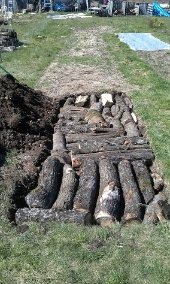




Medicinal herbs, kitchen herbs, perennial edibles and berries: https://mountainherbs.net/ grown in the Blue Mountains, Australia









"Never doubt that a small group of thoughtful, committed citizens can change the world; indeed, it's the only thing that ever has."-Margaret Mead "The only thing worse than being blind, is having sight but no vision."-Helen Keller














"Never doubt that a small group of thoughtful, committed citizens can change the world; indeed, it's the only thing that ever has."-Margaret Mead "The only thing worse than being blind, is having sight but no vision."-Helen Keller


















With some grasses, this would not work well; at least from my perspective. The perennial grasses that are in my meadow might be more tenacious than your lawn grass; almost all of the species will send runner roots spreading it outwards and upwards to the beds, and these will pop up clones sometimes a foot or more away. It produces soil fast with these types of grasses, and makes a strong meadow root net for other permacultural purposes, but for me, in my place, grasses have no place in my garden.he paths between mounds are still undisturbed lawn/white clover. I just run a wipper snipper through as needed, and toss clippings onto mounds.
"Never doubt that a small group of thoughtful, committed citizens can change the world; indeed, it's the only thing that ever has."-Margaret Mead "The only thing worse than being blind, is having sight but no vision."-Helen Keller

| I agree. Here's the link: http://stoves2.com |

